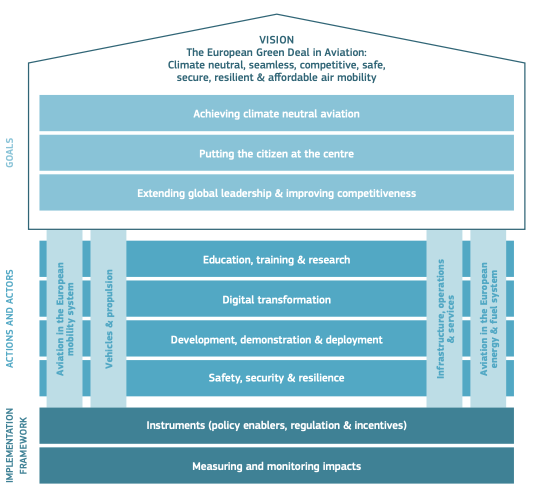
The specific, overarching goals of the Vision are to:
To meet these goals, work must start immediately with priorities on sustainability, putting the citizen at the centre and developing the instruments needed to enable and incentivise the realisation
of the Vision. Development must be complete by 2040 to enable deployment by 2050.
These overarching goals cascade into a more specific, second set of cross-disciplinary goals for the actions and actors across aviation’s themes and domains.

The Vision is underpinned by policy instruments and tools for measuring and monitoring progress: